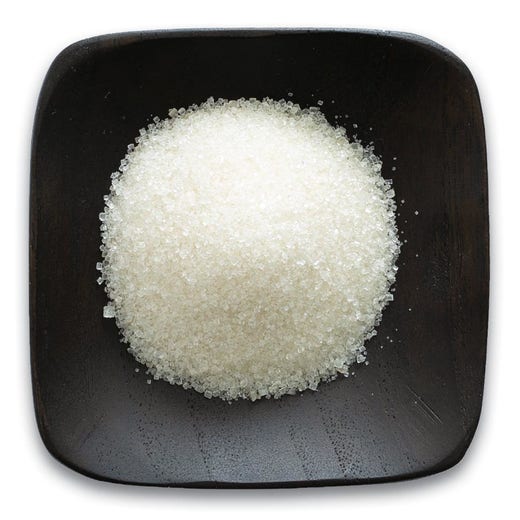Important Cane Sugar Processing Chemicals: A Comprehensive Overview
Important Cane Sugar Processing Chemicals: A Comprehensive Overview
Blog Article
Navigating Regulatory Compliance and Sustainability With Cutting-Edge Walking Stick Sugar Handling Chemicals in the Chemical Export Market

Regulatory Landscape Summary
In the realm of walking cane sugar handling chemicals within the chemical export sector, recognizing the governing landscape is extremely important for ensuring compliance and lasting procedures. Governing bodies such as the Environmental Defense Agency (EPA) and the Fda (FDA) play an essential duty in overseeing the manufacturing, import, and export of these chemicals. Conformity with regulations stated by these bodies is not only a legal need yet also essential for maintaining public wellness and ecological safety and security standards.
Governing frameworks controling walking cane sugar handling chemicals encompass a wide variety of elements, consisting of labeling requirements, allowable levels of specific materials, and standards for safe handling and disposal. For chemical exporters, this means adhering to strict documents procedures, high quality control actions, and periodic audits to demonstrate adherence to these policies.

Lasting Walking Cane Sugar Chemical Innovations

One prominent location of technology is the advancement of environmentally friendly chemicals that minimize water and power usage throughout the sugar processing phases. By executing these lasting solutions, companies can decrease their carbon footprint while keeping high levels of productivity. Furthermore, innovations in eco-friendly chemicals are acquiring grip, using a more eco-friendly choice to conventional processing representatives.
Furthermore, the combination of sustainable power resources in the production process is becoming more widespread, further enhancing the sustainability profile of walking stick sugar processing. By welcoming these lasting walking cane sugar chemical advancements, firms can not only meet regulatory demands but likewise demonstrate a dedication to environmental obligation in the chemical export sector.
Conformity Challenges in Exporting Chemicals
Navigating governing structures positions considerable obstacles for chemical merchants, needing precise interest to compliance requirements and international regulations. Exporting chemicals involves adherence to an intricate web of laws that differ from country to country. Among the main conformity difficulties faced by chemical merchants is guaranteeing that the items meet the particular regulatory requirements of the importing country. This consists of acquiring the necessary licenses, accreditations, and documents to demonstrate the safety and security and legitimacy of the chemicals being exported.
In addition, chemical merchants should stay abreast of constantly developing policies and criteria associated with chemical production, transportation, and handling. Failing to abide by these guidelines can lead to severe repercussions, including penalties, legal activity, and reputational damages. Furthermore, navigating trade limitations, assents, and export control legislations includes one more layer of complexity to the conformity landscape for chemical merchants.
To minimize these difficulties, chemical exporters need to purchase durable compliance programs, conduct routine audits, and engage with governing authorities to make certain a comprehensive understanding of the relevant legislations and policies. By focusing on compliance and remaining proactive in attending to regulative obstacles, chemical merchants can navigate the intricacies of international profession efficiently.
Ecological Effect of Walking Cane Sugar Processing
The environmental implications of cane sugar handling are a critical aspect needing extensive assessment in the chemical export industry. Walking stick sugar processing can have substantial ecological effects at various stages of manufacturing. investigate this site One of the main concerns is the generation of large volumes of wastewater including organic matter, suspended solids, and chemicals utilized in the handling plants. This wastewater, otherwise correctly dealt with, can pollute water bodies, injury aquatic life, and degrade general water top quality. Additionally, the burning of sugarcane fields prior to gathering, a common method in some areas, releases hazardous air pollutants and greenhouse gases into the ambience, contributing to air high quality problems and environment adjustment.
Additionally, the substantial use pesticides and plant foods in sugarcane cultivation can cause dirt deterioration, water contamination, and damage to non-target organisms. It is critical for chemical exporters included in the walking stick sugar processing industry to carry out sustainable methods, spend in advanced wastewater treatment innovations, advertise liable agricultural techniques, and stick to rigid ecological policies to lessen the unfavorable environmental effect of their procedures.
Future Trends in Sustainability Practices
What cutting-edge approaches are chemical merchants in the cane sugar handling market embracing to boost sustainability techniques for the future? As the need for lasting practices proceeds to grow, chemical exporters are welcoming various fads to ensure a greener future for the industry. One noticeable trend is the change in the direction of establishing and using environment-friendly chemicals in the handling of cane sugar. These chemicals are made to minimize environmental effect while keeping high levels of efficiency in the manufacturing procedure.
An additional essential fad is the execution of innovative modern technologies such as automation and data analytics to enhance resource use and reduce waste generation. By taking advantage of the power of data and automation, chemical exporters can streamline their operations, boost energy performance, and improve overall sustainability efficiency.
Moreover, partnerships and partnerships with sustainability-focused companies and stakeholders are becoming progressively usual. By interacting, chemical exporters can exchange understanding, share finest methods, and collectively drive technology towards more lasting walking cane sugar processing methods. Embracing these patterns will not just profit the click here for more environment however additionally make sure long-lasting success and competitiveness in the market.
Conclusion
To conclude, the chemical export sector should navigate intricate governing landscapes and sustainability difficulties when refining walking cane sugar. Developments in cane sugar handling chemicals are essential to satisfying conformity criteria and reducing environmental influence. As the market continues to advance, it is important for business to take on sustainable practices and remain ahead of future fads to make sure long-term success.
In the realm of cane sugar handling chemicals within the chemical export sector, recognizing the regulatory landscape is vital for making sure compliance and sustainable procedures.Discovering innovative strategies in the development of sustainable cane sugar chemical remedies is crucial for progressing ecological stewardship in the chemical moved here export market. Companies are increasingly spending in research study and advancement to produce advanced walking cane sugar handling chemicals that not only ensure high performance in sugar manufacturing yet likewise stick to rigid sustainability requirements.
Additionally, chemical merchants need to stay abreast of frequently progressing criteria and policies connected to chemical manufacturing, transportation, and handling - Cane Sugar Processing Chemicals.The ecological ramifications of walking stick sugar handling are an important aspect calling for complete examination in the chemical export market
Report this page